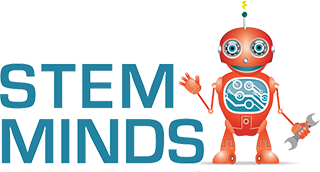Data scientists are one of the best-suited professions to thrive in this century. It is digital, programming-oriented, and analytical. Therefore, it comes as no surprise that the demand for data scientists has been surging in the job marketplace.

Data scientists are one of the best-suited professions to thrive in this century. It is digital, programming-oriented, and analytical. Therefore, it comes as no surprise that the demand for data scientists has been surging in the job marketplace.
However, the supply has been very limited. It is difficult to acquire the skills necessary to be hired as a data scientist.
?
Data science is a multidisciplinary field. Modern data science is an amalgamation of the following skills:
Understanding of the data science field and the type of analysis carried out
Mathematics & Statistics
Python
SQL
Big Data and Spark
Data Visualization
Machine Learning
Deep Learning
Programming Language: Python
Python is a relatively new programming language, and, unlike R, it is a general-purpose programming language. You can do anything with it! Web applications, computer games, and data science are among many of its capabilities.
That’s why, in a short space of time, it has managed to disrupt many disciplines. Extremely powerful libraries have been developed to enable data manipulation, transformation, and visualization. Where Python really shines, however, is when it deals with machine learning and deep learning.
Why Learn It?
When it comes to developing, implementing, and deploying machine learning models through powerful frameworks such as Scikit-Learn, TensorFlow, etc., Python is a must-have programming language.
?
Intro to Data and Data Science
Big data, business intelligence, business analytics, machine learning, and artificial intelligence We know these buzzwords belong to the field of data science, but what do they all mean?
Why learn it?
As a candidate data scientist, you must understand the ins and outs of each of these areas and recognize the appropriate approach to solving a problem. This ‘Intro to Data and Data Science’ will give you a comprehensive look at all these buzzwords and where they fit in the realm of data science.
Mathematics
Learning the tools is the first step to doing data science. You must first see the big picture and then examine the parts in detail.
We take a detailed look specifically at calculus and linear algebra, as they are the subfields that data science relies on.
Why learn it?
Calculus and linear algebra are essential for programming in data science. If you want to understand advanced machine learning algorithms, then you need these skills in your arsenal.
Statistics
You need to think like a scientist before you can become a scientist. Statistics trains your mind to frame problems as hypotheses and gives you techniques to test these hypotheses, just like a scientist.
Why learn it?
This course doesn’t just give you the tools you need; it also teaches you how to use them. Statistics trains you to think like a scientist.
Tableau
Data scientists don’t just need to deal with data and solve data-driven problems. They also need to convince company executives of the right decisions to make.
These executives may not be well versed in data science, so the data scientist must be able to present and visualize the data’s story in a way they will understand.
That’s where Tableau comes in, and we will help you become an expert storyteller using the leading visualization software in business intelligence and data science.
Why learn it?
A data scientist relies on business intelligence tools like Tableau to communicate complex results to non-technical decision-makers.
Advanced Statistics
Regressions, clustering, and factor analysis are all disciplines that were invented before machine learning. However, now these statistical methods are all performed through machine learning to provide predictions with unparalleled accuracy. This section will look at these techniques in detail.
Why learn it?
Data science is all about predictive modeling, and you can become an expert in these methods through this ‘advance statistics’ section.
Machine Learning
The final part of the program, and what every section has been leading up to, is deep learning. Being able to employ machine learning and deep learning in their work is what often separates a data scientist from a data analyst. This section covers all common machine learning techniques and deep learning methods with TensorFlow.
Philosophy We Believe In.
Learning is organic; it grows. Just like a child. You can’t accelerate the years. Accept it.
Principal of Necessary Chaos: Chaos is part of learning. Get comfortable with it. Your objective over your lifetime is to minimize the chaos.
Mathematics is the Only Language; you cannot escape mathematics. Not liking mathematics is akin to not liking oxygen.
To really master any subject, you must know the philosophy behind it.
The inflection point is the “Point of Sustainable Practice." This is the hardest part. Once you reach here, You can drive wherever you want. Till such time, the struggle is inevitable.
Be hands-on and practice daily. It's common sense, isn’t it?

This two-day course provides students with the knowledge and skills to analyze data with Power BI.

Discovering Artificial Intelligence (AI) within Computer Generated Imaging (CGI). Understanding the theoretical aspects and the ongoing research. Integrating AI into daily creative work, visual creations, architecture, design and art. Exploring the AI ??universe.

This two-day course provides students with the knowledge and skills to analyze data with Power BI. Prerequisites: Basic knowledge of the Microsoft Windows operating system and its core functionality; Familiarity with Microsoft Office applications – particularly Excel.

Artificial Intelligence has continued to become more and more sophisticated from social media to search engines to auto correct, we have made a lot of progress in behaviour prediction.

This course is designed for experienced programmers and those with a solid working knowledge of computing technology looking to gain the skills needed to successfully use these key libraries to extract useful insights from data, and as a result, provide great value to the business.
© 2025 coursetakers.com All Rights Reserved. Terms and Conditions of use | Privacy Policy